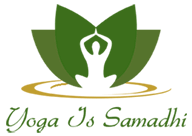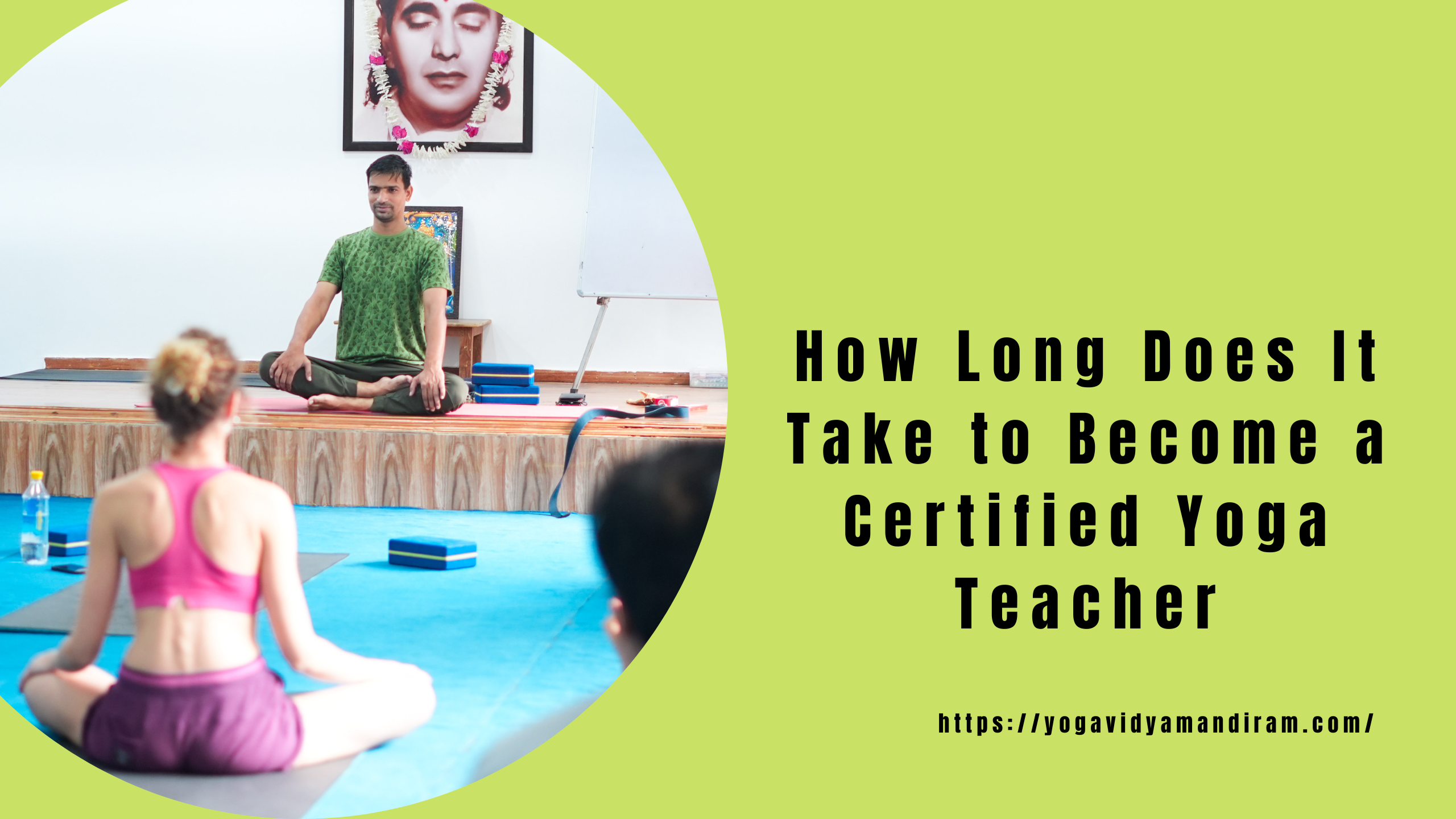Are you willing to make your love of yoga a full-time job? And in case you ever have the dream to become not only a practitioner, but a certified instructor, you have found the right place! The path to the certification of a yoga teacher is not only thrilling and fulfilling, but what is the actual time of it? This post will de-timeline the timeline to this revolutionary trajectory, discuss various training programs and provide some tips on how to maximize your journey. You can find everything you need to know in your practice or become a better teacher as we explore everything about the certification, your yoga certification.
Introduction to Yoga Teacher Training
Yoga has not only grown but has become a lifestyle to a lot of people; it is no longer just a physical activity. With the popularity of yoga on the skyrocket, the interest of wanting to become a certified yoga teacher is increasing. Imagine being able to lead other people in sun salutations or assist someone in achieving balance in tree pose- all the while getting to know more about this centuries-old practice.
In case you have been considering making the jump into Yoga Teacher Training in Rishikesh, you are not alone. This scenic place is the favorite of enthusiasts who come to admire the calm scenery and rich spiritual culture. But what is the time it will take to acquire that prestigious certification? The solution is not simple and it is based on different factors. Now, it is time to explore further what it will require to become a certified yoga teacher, with the training timelines, training requirements and success tips on the way.
Different Levels of Certification
Yoga teacher training is provided at different levels of certification, which are applicable in the levels of experience and expertise. The well-known 200 Hour Yoga Teacher Training in Rishikesh. This introductory program provides future educators with necessary knowledge of yoga philosophy and anatomy and yoga teaching methods.
Others who are interested in advancing their practice might take a 300 hours program provided they have completed the 200 hours of training. This higher qualification specializes in specialized fields like therapeutic yoga or a certain style like the Vinyasa or Ashtanga.
The other alternative is the RYT-500 of the Yoga Alliance. Reaching this level will mean a wide range of knowledge and experience that allows certified instructors to be more competitive in the workforce.
Moreover, there are specialized certifications of special practices such as prenatal yoga or kids yoga. These enable the teachers to personalize their products and address the needs of the community in a competent manner. Each of the certification levels provides new opportunities of self-development and a new career in the colorful world of yoga teaching.
Requirements for Becoming a Certified Yoga Teacher
In order to go on the path of acquiring the qualification of a certified yoga teacher, some conditions have to be fulfilled. To start with, future educators are supposed to possess an excellent personal practice. This background assists in the interpretation of different postures and philosophies.
The vast majority of programs presuppose the participants to undergo at least 200 hours of training. Such hours are usually anatomy, instructional technique, and yoga philosophy.
Other schools might also seek previous experience in yoga classes or workshops. By reading various styles, you might expand your understanding and abilities and then get down to teacher training.
Also, most certification programs lean towards candidates who are eager to spread their passion to others regarding the area of yoga. There must be some real concern to aid students to develop.
Finally, it is always nice to join an approved program that can fit your values and teaching objectives. Every school has got its way of training prospective educators.
Length of Time to Complete Training
Yoga teacher training may take up time significantly. Normally, a 200-hour course will occupy three to six months in part time. This can be compressed in intensive courses to one month.
In case of those seeking advanced certification like a 300-hour one, another six months or two years will be required to complete the course. The rate is determined by personal efforts and the organization of the course of choice.
There are also options online, and they provide a higher level of flexibility in the timing. Such a format can either prolong or cut your learning schedule depending on individual commitment.
Finally, you need to select a time that fits your life and ambitions. Inquest study not only will help in raising your knowledge but also your power to teach in the long-term. Every person has his or her own experience; this is the time to embrace it in this transforming process.
Factors That Can Affect the Duration of Training
Yoga teacher education may take a long time depending on a number of aspects.
The background experience of yoga is very important. The individuals who have been doing it long enough might find that they adjust faster than the new members.
The structure of the program is also important. Intensive courses, particularly those conducted in picturesque places such as Rishikesh, can accelerate the learning process to a matter of weeks, whereas part-time courses can be spread over a period of months to fit the busy schedule of the learner.
Another significant aspect is the levels of commitment. Those who commit themselves will tend to gain more benefits sooner than the ones who have to work on several things simultaneously.
Also, the schools follow a different set of curriculum and teaching methods, which may affect the time taken to achieve requirements within an effective time.
Finally, personal factors like employment or family-related issues may have an influence on your willingness to participate in the training process.
Choosing the Right Yoga Teacher Training Program
Choosing the right yoga teacher training in Rishikesh is crucial for your journey. Start by understanding your personal goals. Are you seeking to deepen your practice, or do you aspire to teach professionally?
Research different programs extensively. Look for those that align with your interests and teaching styles—Hatha, Vinyasa, or Ashtanga, for instance.
Consider the credentials of the instructors. Experienced teachers often provide invaluable insights and mentorship during training.
Location matters too! Programs in serene places like Rishikesh can enhance your learning experience through immersion in nature and culture.
Check reviews from past participants. Their experiences can offer a glimpse into what awaits you.
Lastly, don’t forget about flexibility in scheduling if you’re balancing work or other commitments. A program accommodating your lifestyle will help make this transformative journey enjoyable and effective.
Tips for Successfully Completing Yoga Teacher Training
Staying organized is crucial. Create a schedule that balances study time, practice sessions, and self-care. This structure will help you manage your responsibilities effectively.
Engage with fellow trainees. Forming connections can provide support and motivation throughout the training process. Sharing experiences enhances learning.
Practice regularly to deepen your understanding of yoga postures and philosophy. Consistent practice solidifies concepts learned in class, making them second nature during teaching.
Don’t hesitate to ask questions. Whether you’re unsure about poses or teaching techniques, clarification is key to mastering the material.
Take care of yourself physically and mentally. Adequate rest, nutrition, and mindfulness activities can enhance focus and energy levels as you navigate through your training journey.
Lastly, embrace the experience fully without fear of failure. Learning is part of growth; each challenge presents an opportunity for improvement on this enriching path toward becoming a certified yoga teacher.
Career Opportunities for Certified Yoga Teachers
The world is experiencing an increasing demand of certified yoga teachers. Having a certification, you have an opportunity to pursue many job opportunities within wellness and fitness.
Several instructors succeed in conventional studios, which offer classes of various skill levels. Some people could opt to become gym instructors, community instructors or in corporate settings where wellness programs are emerging.
There are certified instructors who choose the freelance opportunities. They provide one-on-one sessions or individualistic needs or arrange workshops and retreats that are devoted to particular topics such as mindfulness or techniques.
Also, the internet has provided new frontiers in teaching. Online classes enable teachers to interact with learners in different parts of the world at the comfort of their homes.
It is also by training yoga teachers that one acquires skills that can be used outside the classroom. Most of the graduates move to positions like health coaches, holistic practitioners or even writers who express knowledge on yoga philosophy and practices.
Conclusion: The Importance of Continuous Learning and Growth in the Field of Yoga Teaching.
Being a certified yoga teacher is not only a matter of hours. It is a continuous process which promotes constant learning and development. Yoga is a constantly changing phenomenon, and new styles, methods, and philosophies appear every day.
To the people that attended Yoga Teacher Training in Rishikesh or any other place, the decision to self-discover and teach does not end once they are certified. Most of the successful teachers go through advanced training programs or become specialists in subjects like prenatal yoga, therapeutic practices, or mindfulness coaching. This commitment adds value to their teaching practice and their students end up gaining a lot.
Being alive with the trends and methods makes you a more credible instructor. The workshops, retreats, or even online courses may help you introduce new perspectives into your practice.
Besides, connections with other teachers promote community connections besides providing information on other teaching methods and styles. Another way of doing this in this lifetime path is by working with mentors.
Finally, the philosophy of constant learning is quite compliant with the spirit of yoga itself since continuous development through experience and change with time comes essential in personal development and success in the field.


Leave a Reply